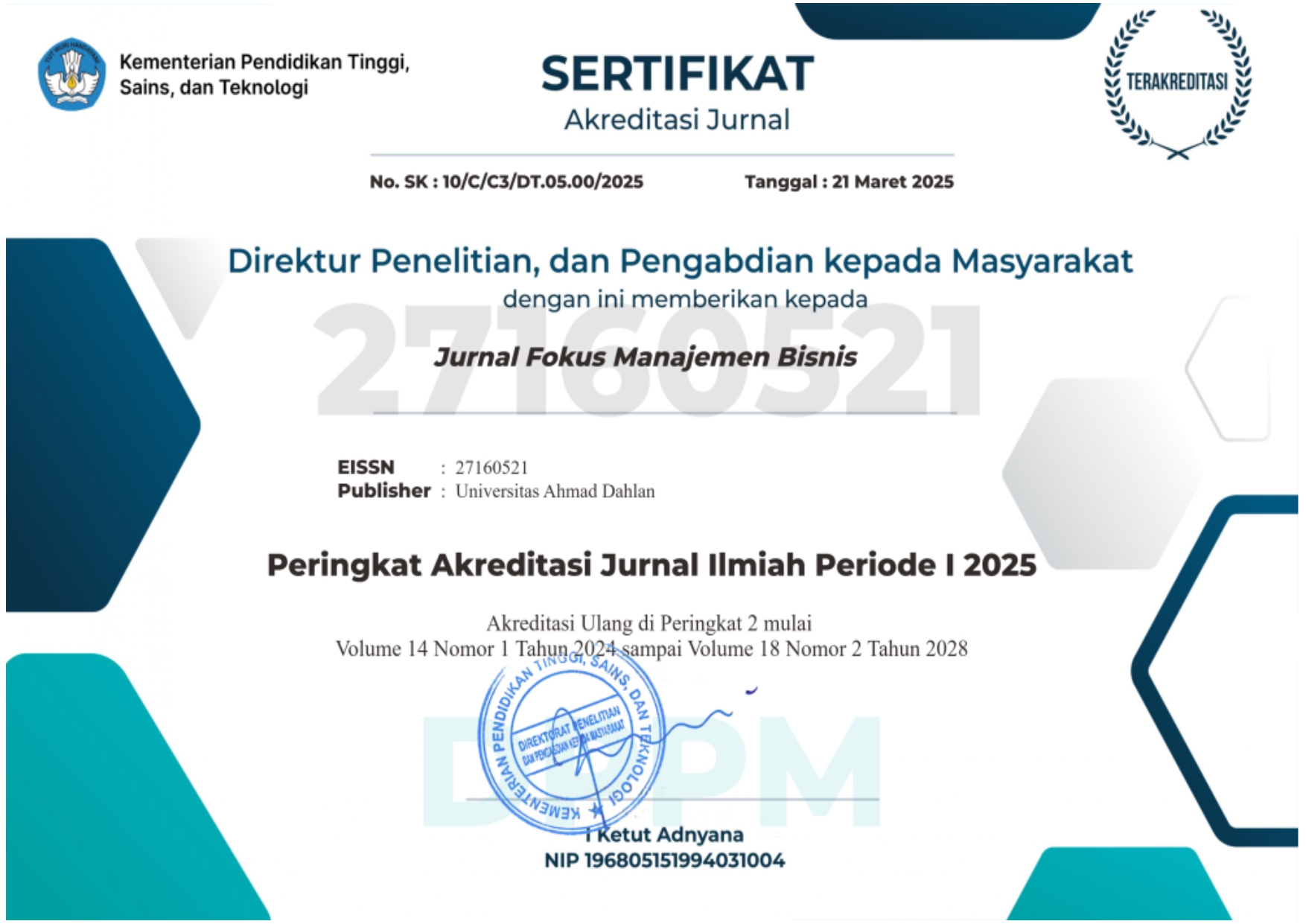ANALISIS PENGARUH RASIO KEUANGAN TERHADAP HARGA SAHAM PADA PERUSAHAAN FARMASI YANG TERDAFTAR DI BURSA EFEK INDONESIA PERIODE 2010-2014
DOI:
https://doi.org/10.12928/fokus.v5i2.1625Keywords:
Current Ratio (CR), Debt to Equity Ratio (DER), Net Profit Margin (NPM), Total Asset Turnover (TATO)Abstract
This study aims to analyze the effect of Debt to Equity Ratio (DER), Total Asset Turnover (TATO), Current Ratio (CR) and Net Profit Margin (NPM) to share prices. the statistical method used is a model multiple linear regression. The sample in this study was a pharmaceutical company. The results showed that together (simultaneously) variables Debt to Equity Ratio (DER), Total Asset Turnover (TATO), Current Ratio (CR) and Net Profit Margin (NPM) significantly influence stock prices. While partially, Debt to Equity Ratio (DER) with significance, Current Ratio (CR) is proven to have a significant effect on stock prices. Whereas that has no effect on price is Total Asset Turnover (TATO) and Net Profit Margin (NPM).Downloads
Published
2020-01-29
How to Cite
Prasetyo, D., & Khoirunnisa, R. M. (2020). ANALISIS PENGARUH RASIO KEUANGAN TERHADAP HARGA SAHAM PADA PERUSAHAAN FARMASI YANG TERDAFTAR DI BURSA EFEK INDONESIA PERIODE 2010-2014. Jurnal Fokus Manajemen Bisnis, 5(2), 181–193. https://doi.org/10.12928/fokus.v5i2.1625
Issue
Section
Articles
License
Authors who publish with this journal agree to the following terms:Â
- Authors retain copyright and grant the journal right of first publication with the work simultaneously licensed under a Creative Commons Attribution License that allows others to share the work with an acknowledgment of the work's authorship and initial publication in this journal.
- Authors are able to enter into separate, additional contractual arrangements for the non-exclusive distribution of the journal's published version of the work (e.g., post it to an institutional repository or publish it in a book), with an acknowledgment of its initial publication in this journal.
- Authors are permitted and encouraged to post their work online (e.g., in institutional repositories or on their website) prior to and during the submission process, as it can lead to productive exchanges, as well as earlier and greater citation of published work (See The Effect of Open Access).






